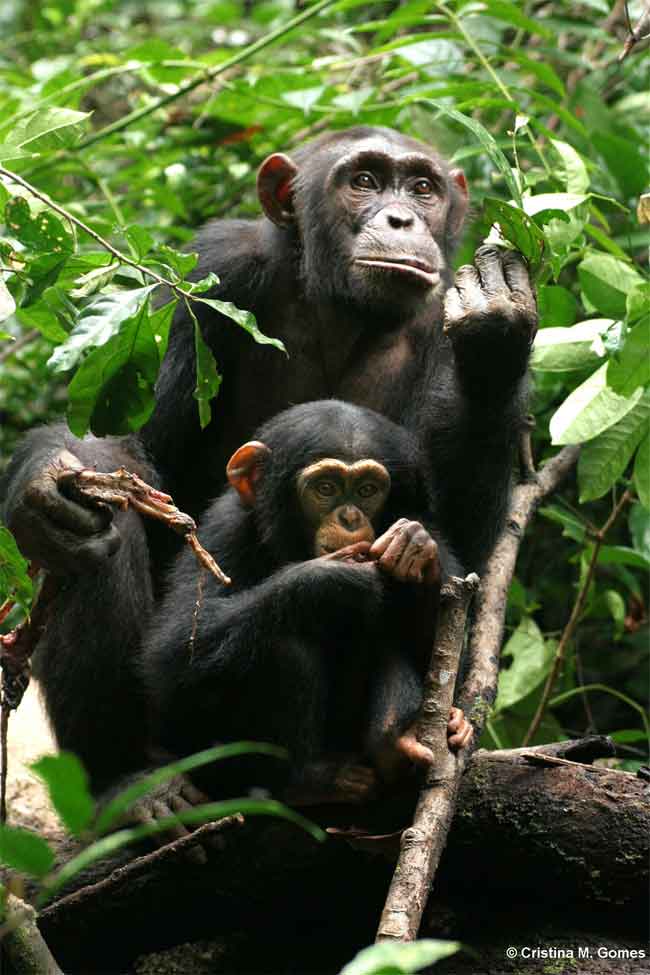No Mental Chumps: Chimps Decipher What Others Are Thinking

Get the world’s most fascinating discoveries delivered straight to your inbox.
You are now subscribed
Your newsletter sign-up was successful
Want to add more newsletters?

Delivered Daily
Daily Newsletter
Sign up for the latest discoveries, groundbreaking research and fascinating breakthroughs that impact you and the wider world direct to your inbox.

Once a week
Life's Little Mysteries
Feed your curiosity with an exclusive mystery every week, solved with science and delivered direct to your inbox before it's seen anywhere else.

Once a week
How It Works
Sign up to our free science & technology newsletter for your weekly fix of fascinating articles, quick quizzes, amazing images, and more

Delivered daily
Space.com Newsletter
Breaking space news, the latest updates on rocket launches, skywatching events and more!

Once a month
Watch This Space
Sign up to our monthly entertainment newsletter to keep up with all our coverage of the latest sci-fi and space movies, tv shows, games and books.

Once a week
Night Sky This Week
Discover this week's must-see night sky events, moon phases, and stunning astrophotos. Sign up for our skywatching newsletter and explore the universe with us!
Join the club
Get full access to premium articles, exclusive features and a growing list of member rewards.
Chimpanzees apparently can figure out what others are thinking, a mental ability seen nowhere else in the animal kingdom so far except for in humans, scientists find.
This discovery may shed light on how advanced the mind of the last common ancestor of humans and chimps might have been.
In recent years, research has revealed just how much chimpanzees — humanity's closest living relatives — have in common with us. They can hunt with spears, play with improvised dolls and mourn their dead.
Past research also showed that chimps can figure out what others know. For instance, subordinate chimpanzees ordinarily let more dominant members get at food first, but they will eat items if they know that others cannot see them.
It was an open question as to whether chimps' mental capabilities might go beyond knowing what others might know to what others might think. Now scientists find they might possess this advanced mental ability.
The researchers tested 12 juvenile and teenage chimpanzees housed at the Wolfgang Köhler Primate Research Center. First the apes watched while a single piece of food, such as a banana slice, was hidden under one of two boards placed on a table. If food was tucked under one board, that board would visibly not lie flat on the table, since the good under it propped it up at a slant; if it was concealed under the other, that board would remain flat, because there was a hole in the table under that board.
The table (which held the boards) was then temporarily hidden from view. Sometimes another chimp was then given a chance to look for a snack at the table. The table was then shown again to the first set of apes.
Get the world’s most fascinating discoveries delivered straight to your inbox.
Normally, the apes that saw the food get hidden went for the slanted board after they were again shown the table. However, if they knew that competitors had been given a chance at that table, they went after the other board. In other words, they avoided the option they would have normally chosen themselves on the assumption that the competitor had already done so and remembered which board was which.
"When a cognitive ability like this can be shown in our closest living relative — and, to our current knowledge, in no other non-human species — it can be argued that the last common ancestor might also have shared this ability," researcher Martin Schmelz, a primatologist at the Max Planck Institute for Evolutionary Anthropology in Leipzig, Germany, told LiveScience. "The more we know about the differences and similarities of humans and chimpanzees, the clearer our picture of the last common ancestor can become."
The scientists detailed their findings online Jan. 31 in the Proceedings of the National Academy of Sciences.
You can follow LiveScience on Twitter @livescience.

 Live Science Plus
Live Science Plus










